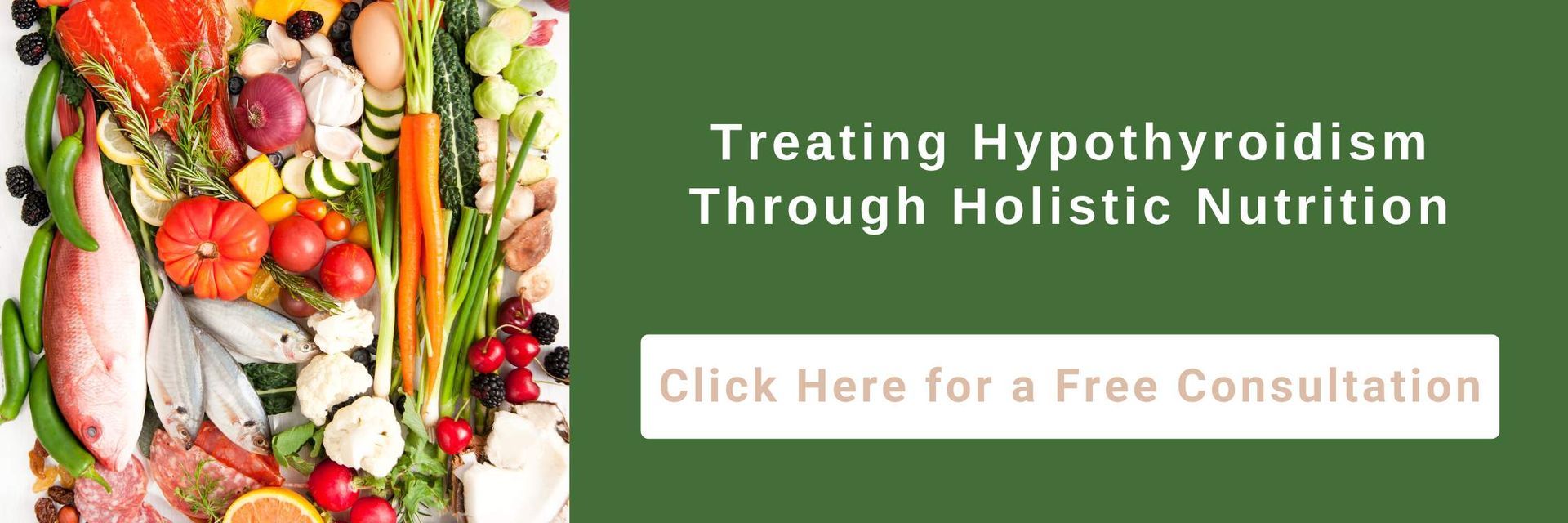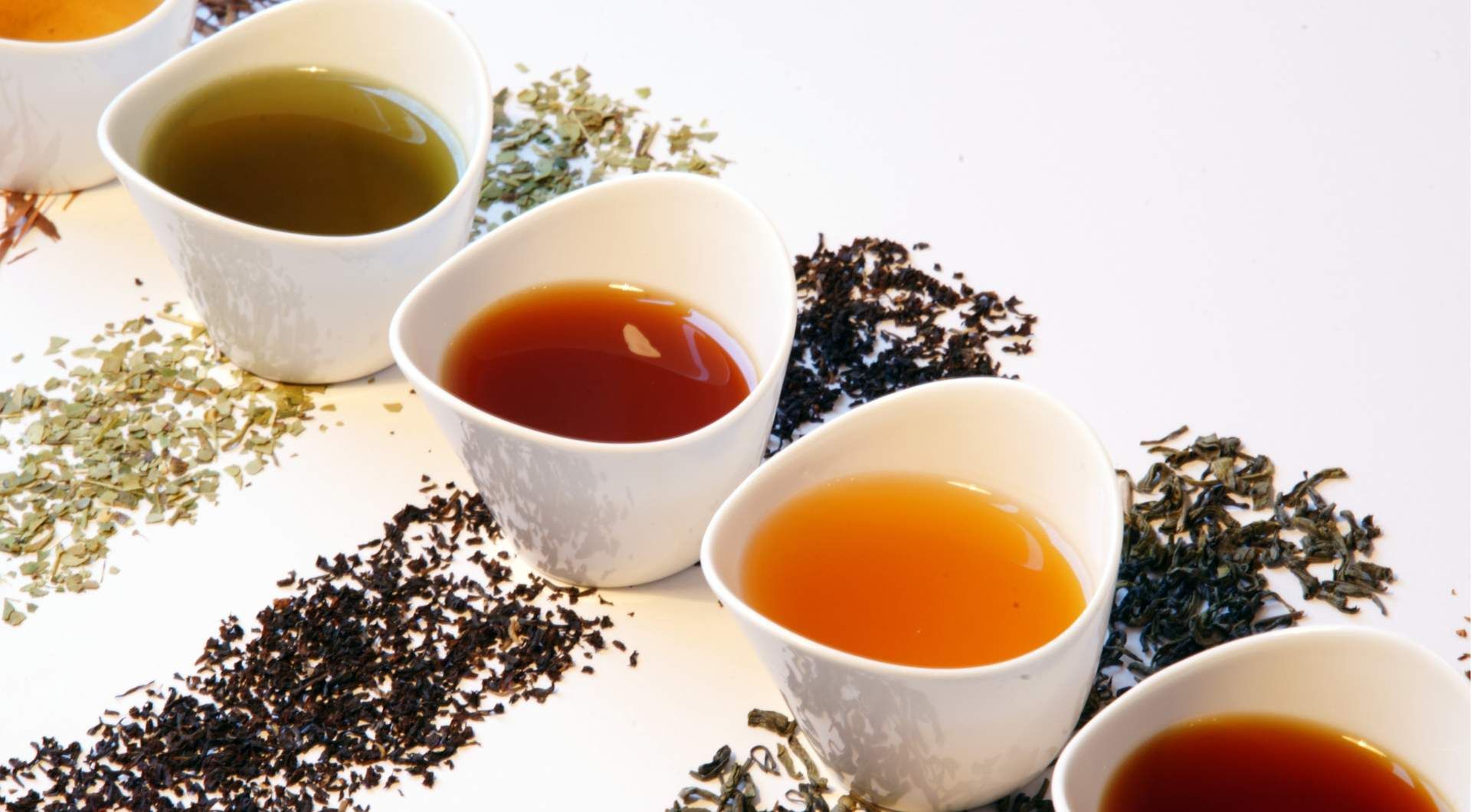Which Tea Is Good for Thyroid Problems? 4 Teas That May Help Hypothyroidism
"The content below is not intended to be a substitute for professional medical advice, diagnosis, or treatment. Always seek the advice of your physician or other qualified health provider with any questions you may have regarding a medical condition."
If you’re someone who greets the day with a cozy cup of tea, and you struggle with hypothyroidism, your morning routine might be doing more for your health than you realize. While a warm cup of tea can feel like a morning hug, some blends can be a friend (or an enemy) to your thyroid.
Hypothyroidism — a condition where the thyroid gland underperforms and slows down your body’s metabolism — requires careful balancing when it comes to what you eat and drink.
Before you abandon your tea-loving ways, learn which teas are good for hypothyroidism and which teas to avoid to keep your symptoms at bay.
Table of Contents
Is Tea Good for Hypothyroidism?
Many teas are suggested to have beneficial effects on cardiovascular and metabolic health. Others are found to decrease stress and inflammation in the body — all helpful for those struggling with hypothyroidism.
Although there are no teas that can cure hypothyroidism, some herbs used in teas have healing properties that may optimize thyroid function and how the thyroid interacts with hormones throughout the body.
Drinking tea can be beneficial for the symptoms associated with hypothyroidism but to get to the real root of your condition, HealthierU takes a natural approach to
hypothyroidism treatment in Brooklyn. Contact us today to learn more.
The Science Behind Why Tea May Be Helpful for Hypothyroidism
Drinking medicinal tea isn’t a new concept — people have been doing this for centuries. Although the effects may not be as strong as modern-day medications, plants have a powerful impact on our body’s systems.
When it comes to thyroid function, drinking tea has a place.
Iodine Deficiency
Iodine is critical for supporting the formation of hormones. When your diet lacks adequate iodine, it may lead to hypothyroidism. You can
increase your iodine intake through diet and by drinking teas made of plants rich in iodine content, like seaweed.
Subclinical Hypothyroidism
People with subclinical hypothyroidism — an early and mild form of hypothyroidism — may benefit from drinking teas that help prevent thyroid dysfunction. This, plus other lifestyle changes — like
diet, exercise, stress management, and treating other health conditions — can be great natural approaches for managing symptoms.

5 Teas for Hypothyroidism and Their Benefits
#1: Chamomile Tea
Chamomile may help manage symptoms of hypothyroidism because it’s known for helping to soothe upset stomachs — a common symptom of those suffering from hypothyroidism.
One study shows that drinking 2-6 cups of chamomile tea a week might help decrease benign and malignant thyroid disease.
You can find chamomile in the form of dried flower heads, extracts, tea, and capsules. To make chamomile tea:
- Boil 1 cup of water.
- Add up to 4g of dried chamomile herb.
- Steep for 15 minutes.
- Drink up to 4x/day between meals.
#2: Sage Tea
Sage tea has many emerging health benefits. According to the same study used on chamomile tea, it was found that sage tea decreases the incidence of cancerous and non-cancerous thyroid disease in those who drink it several times a week.
Many who suffer from hypothyroidism also struggle with depression and low mood. Along with reducing the risk of thyroid disease, drinking sage tea has been found to potentially improve mood.
Sage can be found as an herb or in tea form. To make sage tea:
- Boil 1 cup of water.
- Add 1-2 teaspoons of dried sage leaves or 2-3 fresh sage leaves.
- Steep for 5-7 minutes.
- Limit yourself to 3-6 cups per day.
#3: Ashwagandha Tea
Ashwagandha is an evergreen shrub that grows in Asia and Africa and is commonly ingested to help with stress. It contains chemicals that can help calm the brain, reduce swelling, lower blood pressure, and alter the immune system.
Because stress is a hallmark cause of any disease, keeping stress levels low is important for those with hypothyroidism. Although research isn’t conclusive, we can suggest from the studies below that ashwagandha may help:
- Decrease inflammation
- Reduce blood sugar
- Decrease cortisol levels
- Boost memory and cognition
- Stimulate the immune system
- Inhibit the growth of cancerous cells
Ashwagandha typically comes in powder form and is ingested as a capsule. To use ashwagandha in tea, steep a fresh or dried root or root powder in boiling water.
#4: St. John’s Wort
Since ancient times, St. John’s Wort has been used to treat pain in muscles and joints, depression, restlessness, nervousness, insomnia, and feelings of fatigue — many of these common symptoms of hypothyroidism.
To make this perennial herb into a tea:
- Boil ½ cup of water.
- Add 1 teaspoon of St. John’s Wort herb.
- Steep for 5 minutes.
- Drink twice a day, before breakfast and bedtime.
#5: Mountain Tea
Mountain tea — also known as Sideritis or Shepherd’s tea — may offer potential benefits for those struggling with hypothyroidism because of its antioxidant and anti-inflammatory properties.
A 2015 study found an inverse association between consuming herbal teas like mountain tea and the risk of thyroid cancer and other benign thyroid diseases.
To make mountain tea:
- Add loose tea (dried stems, leaves, or flowers) or tea bags to water, using 2-3 sprigs per cup of water.
- Boil the water and steep for 5-15 minutes .
- Strain the team and remove loose leaves and stems.
- Infuse for several rounds until the flavor or aroma dissipates.
Is Green Tea Good for Hypothyroidism?
If you’re looking for a tea that’s good for hypothyroidism, many teas are made with herbal medicines that could help manage the symptoms. With your doctor, you may explore:
- Green tea
- Chamomile tea
- Ashwagandha tea
- Sage tea; or
- St. John’s wort
Are There Drawbacks To Drinking Tea for Hypothyroidism?
Drinking different herbal teas is a great supplemental option for managing hypothyroidism symptoms and supporting overall health, but drinking tea alone cannot treat thyroid diseases. Instead, most people with hypothyroidism require thyroid hormone replacement medication to correct their thyroid hormones.
Additionally, certain teas may cause more harm than good, so conduct research and talk with your doctor before you begin brewing your favorite blend.
Unsure where to start? Dr. Sergi at HealthierU can help you find the best natural treatment option to manage your hypothyroidism. Contact us today.
Additional Natural Treatments That May Help Hypothyroidism Symptoms
Unfortunately, living a “normal” life with an underactive thyroid is difficult. While drinking the herbal teas mentioned here can help manage symptoms, hypothyroidism is typically treated by taking a daily hormone replacement — usually levothyroxine or Synthroid.
Additionally, some lifestyle changes can result in higher thyroxine, including:
- Getting quality sleep
- Avoiding smoking
- Managing stress
- Eating a hypothyroidism-friendly diet
- Drinking less caffeine
- Exercising regularly
Learn About Natural Approaches To Managing Hypothyroidism Symptoms With HealthierU
Tea can be a comforting part of your routine and even offer health benefits — but when it comes to hypothyroidism, a little awareness can go a long way. Some teas may interfere slightly with thyroid hormone absorption, while others help manage the unpleasant symptoms of hypothyroidism.
The key to tea and hypothyroidism is timing, moderation, and knowing what’s in your cup.
HealthierU in Brooklyn conducts a thorough examination and provides expert guidance on the best nutrition and lifestyle choices to support your hypothyroidism. To determine your symptoms and come up with a plan for management, contact us today.





